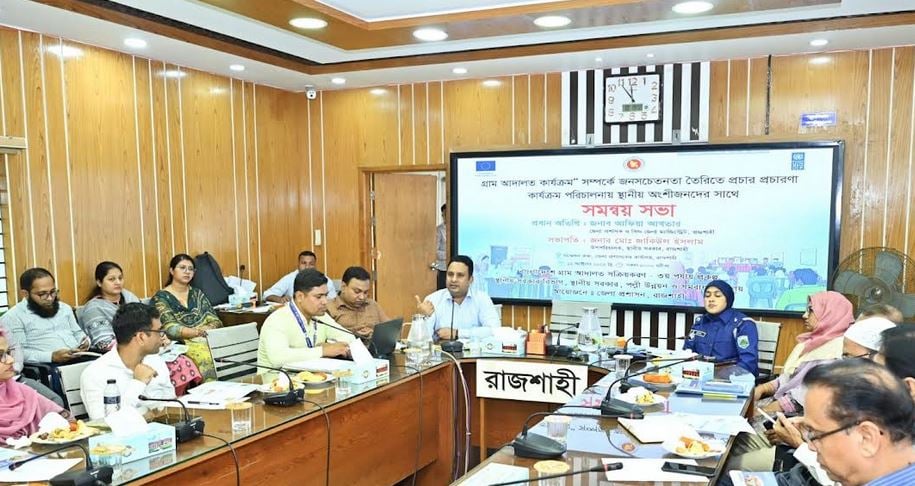News Flash
News Flash

RAJSHAHI, Oct 19, 2025 (BSS)- Speakers at a participatory meeting here on
Sunday underscored the need for popularising village courts in rural areas to
resolve the small issues of dispute to build a peaceful society.
Integrated efforts of all government and non-government organisations
concerned can be the best way of strengthening local justice systems in rural
areas through establishing close-to-home, low-cost village courts that
adjudicate minor disputes between residents.
Government officials and other stakeholders made the observation while
addressing a coordination meeting with stakeholders to generate public
awareness about the activities of village court.
District administration as part of implementation of the "Activation of
Village Court in Bangladesh (third phase) project" organised the meeting at
the conference hall of Deputy Commissioner (DC) discussing and devising ways
and means on how to attain the cherished goal.
Deputy Director of Local Government Zakiul Islam addressed the meeting as the
focal person.
Additional Superintendent of Police Helena Akter, Deputy Director of
Department of Youth Development ATM Golam Mahbub, Deputy Director of
Department of Social Services Monira Khatun, District Primary Education
Officer Anwar Hossain and Deputy Director of District Information Office
Nafeyala Nasrin also spoke.
During his concept paper presentation, District Coordinator Lutfor Rahman
attributed that the village court is a semi-formal judicial system for
resolving minor disputes at the local level.
Main aim of village courts is to provide rural communities with accessible,
affordable, and speedy justice for minor civil and criminal disputes by
settling them locally for reducing the burden on formal courts and fostering
social peace.
Making local authorities more responsive to justice needs, empowering
marginalized groups to seek remedies at the local level, and resolving
disputes in an expeditious and transparent manner are the specific
objectives.
Zakiul Islam said village court works to provide the rural poor, women, and
other vulnerable groups with a local and accessible justice system that is
often intimidating and costly in formal courts.
It's mandated to settle minor disputes quickly, avoiding the lengthy and
complex processes of the formal court system.